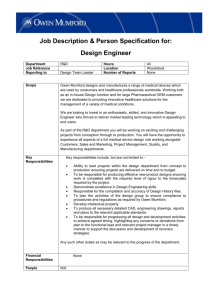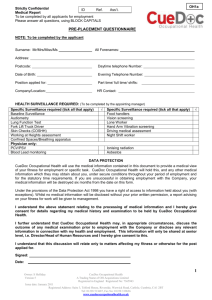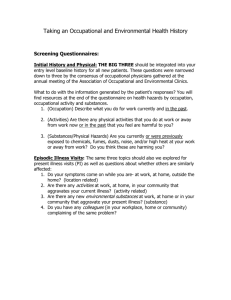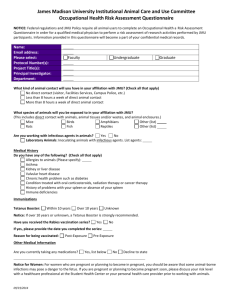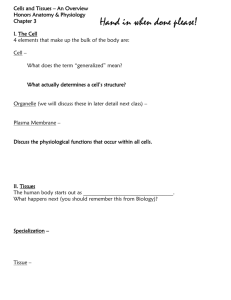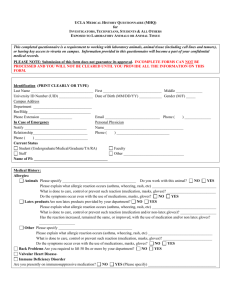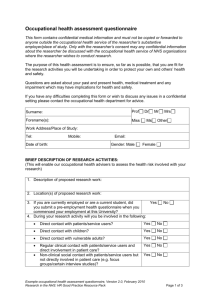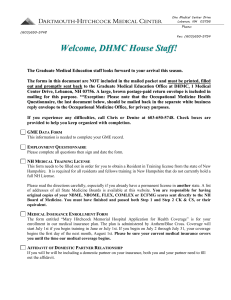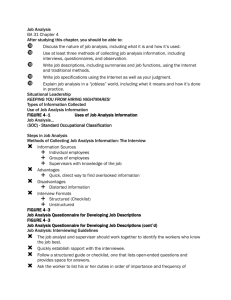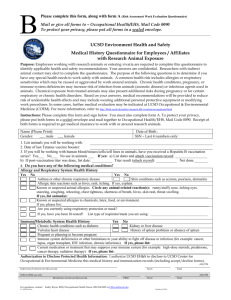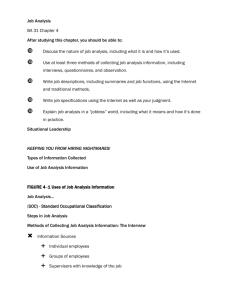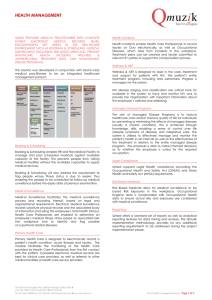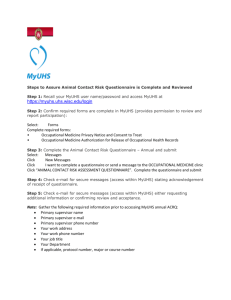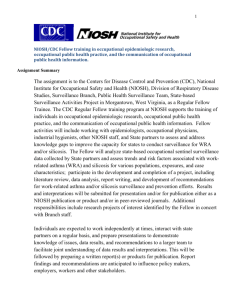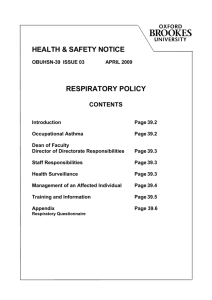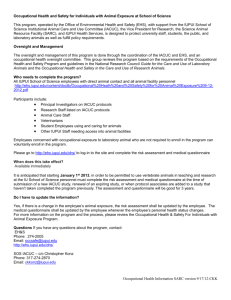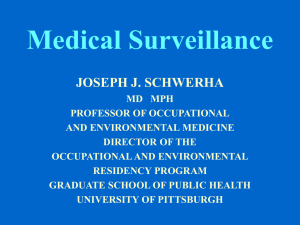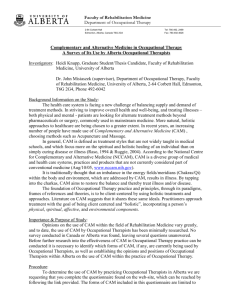OHS Animal Contact Annual Update
advertisement
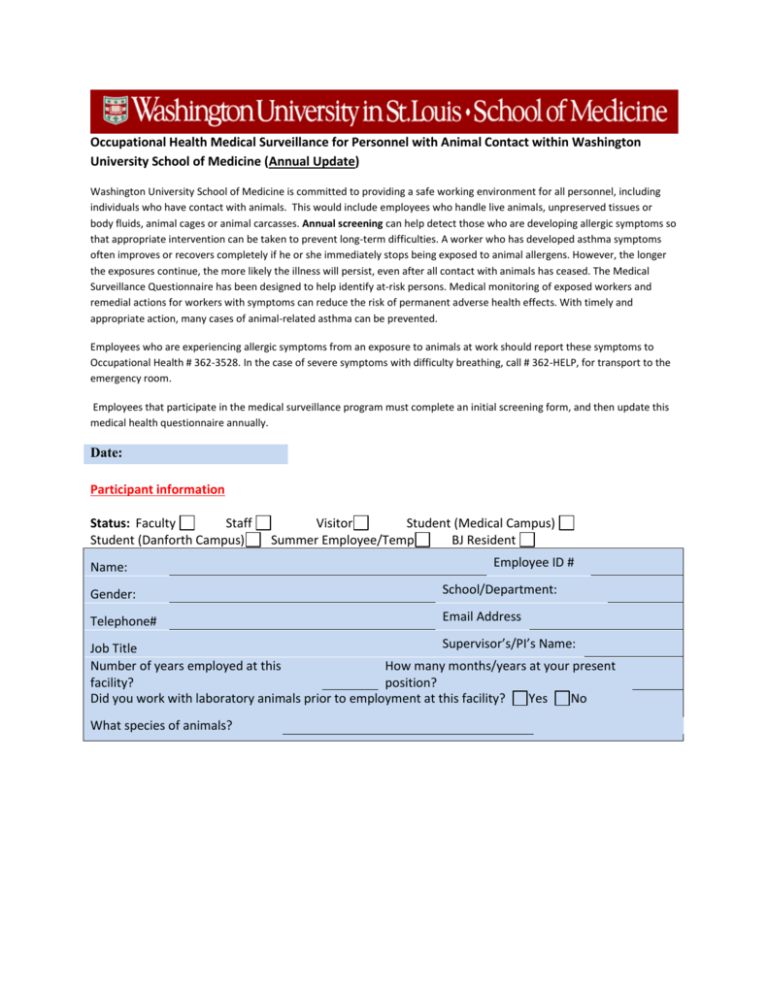
Occupational Health Medical Surveillance for Personnel with Animal Contact within Washington University School of Medicine (Annual Update) Washington University School of Medicine is committed to providing a safe working environment for all personnel, including individuals who have contact with animals. This would include employees who handle live animals, unpreserved tissues or body fluids, animal cages or animal carcasses. Annual screening can help detect those who are developing allergic symptoms so that appropriate intervention can be taken to prevent long-term difficulties. A worker who has developed asthma symptoms often improves or recovers completely if he or she immediately stops being exposed to animal allergens. However, the longer the exposures continue, the more likely the illness will persist, even after all contact with animals has ceased. The Medical Surveillance Questionnaire has been designed to help identify at-risk persons. Medical monitoring of exposed workers and remedial actions for workers with symptoms can reduce the risk of permanent adverse health effects. With timely and appropriate action, many cases of animal-related asthma can be prevented. Employees who are experiencing allergic symptoms from an exposure to animals at work should report these symptoms to Occupational Health # 362-3528. In the case of severe symptoms with difficulty breathing, call # 362-HELP, for transport to the emergency room. Employees that participate in the medical surveillance program must complete an initial screening form, and then update this medical health questionnaire annually. Date: Participant information Status: Faculty Staff Student (Danforth Campus) Name: Visitor Student (Medical Campus) Summer Employee/Temp BJ Resident Employee ID # Gender: School/Department: Telephone# Email Address Supervisor’s/PI’s Name: Job Title Number of years employed at this How many months/years at your present facility? position? Did you work with laboratory animals prior to employment at this facility? Yes No What species of animals? Workplace Environment Does your position require work with infectious agents? Yes No if “yes” please list the infectious agent. Indicate the types of animal contact you will have: I am not handling animals but will be working in areas where animals are housed I have direct contact and handling of non-fixed animals tissues, animal fluids or animal wastes I have direct contact with non-sanitized animal caging or enclosures I will have direct contact with non-human primates or tissues Please indicate the animals you will be exposed to-(this includes direct contact with animals, animal tissues, and/or wastes, and animal enclosures/cages/bedding) and document the approximate contact hours per week. Rodents (mice, rats, hamsters ) hours per week Small animals (rabbits, chinchilla, guinea pigs, other) hours per week Dogs, cats, pigs, other Sheep Frogs, Fish or other aquatics hours per week hours per week hours per week Marmosets hours per week Nonhuman Primates hours per week I verify that all this information is accurate. I fully understand that I will communicate any changes in my health status to WUMS Occupational Health Service. In addition, I will complete a new medical questionnaire to reflect these changes in my medical history or work assignments. I understand that if I decline further participation at this time, I can elect to participate at a later date. I elect to participate in the program. I decline further participation in the program at this time. I understand that due to my occupation and potential exposure to animals that I may be at risk for allergies or zoonotic diseases. I have experienced changes in my health history from last year, as related to the beginning of or increased allergy symptoms. Occupational Health will contact me for follow up. Please email the completed questionnaire to: Occupationalhealthservice@wusm.wustl.edu if you have any questions regarding this form please contact Occupational Health #362-3528.
